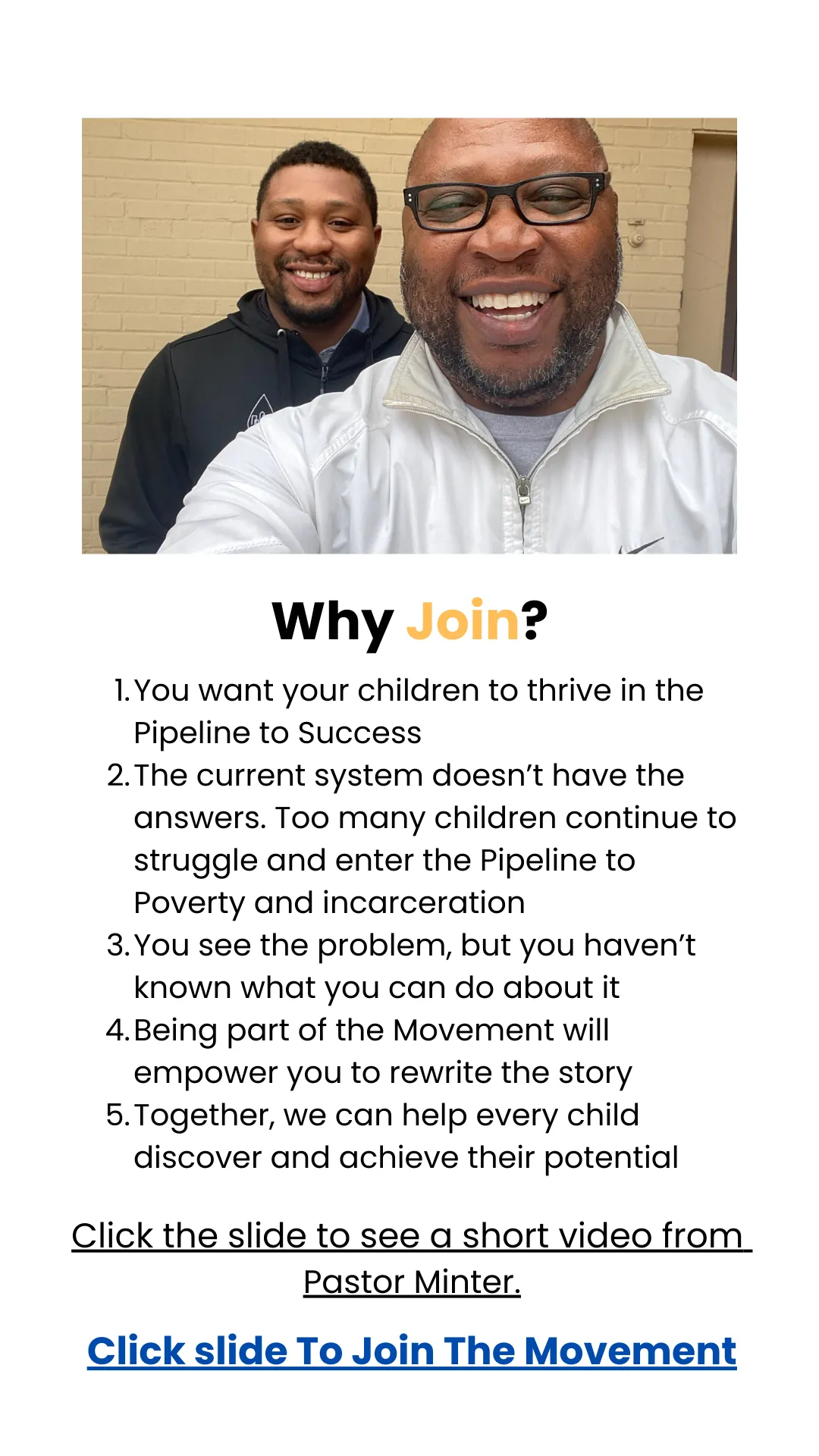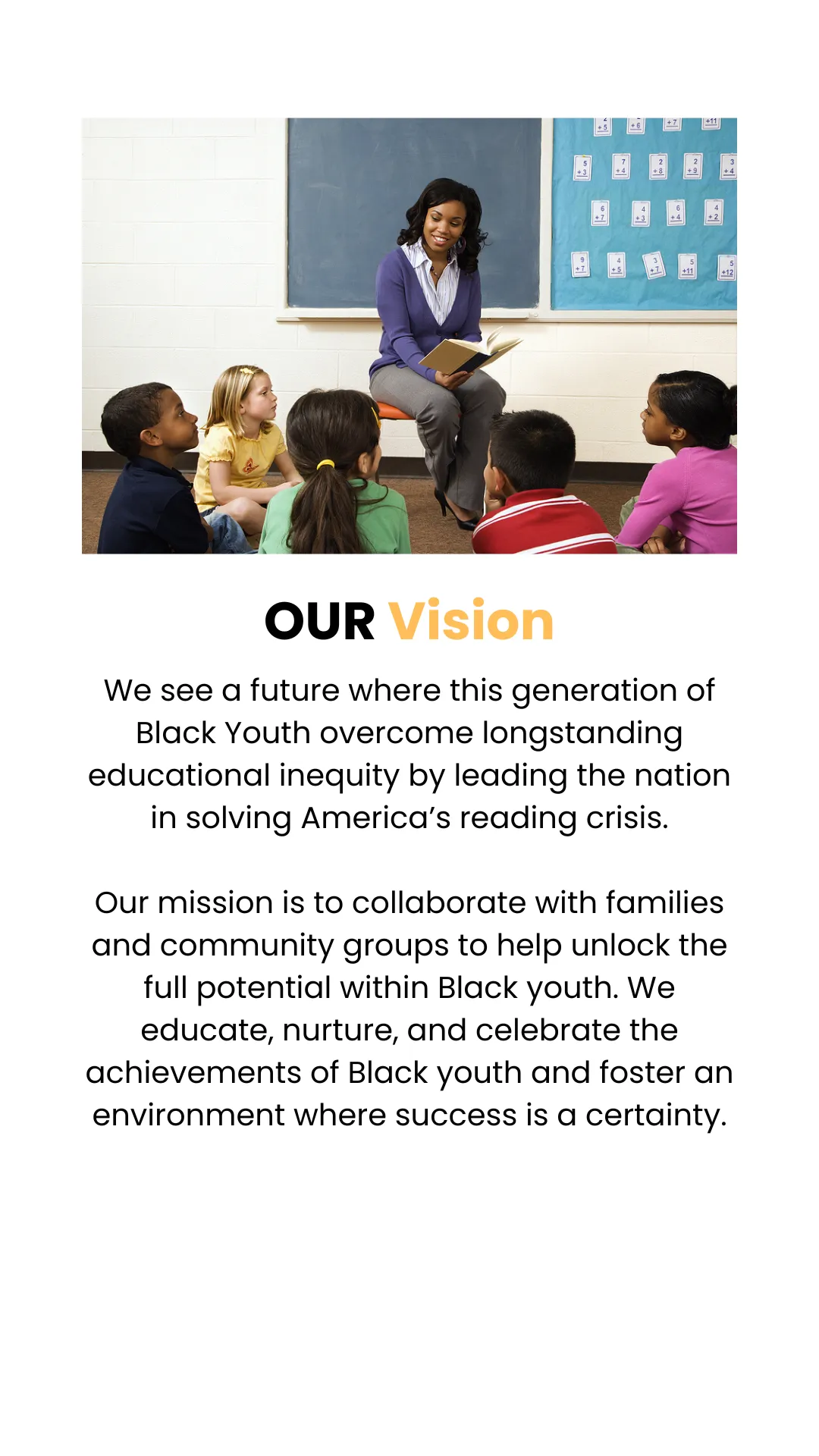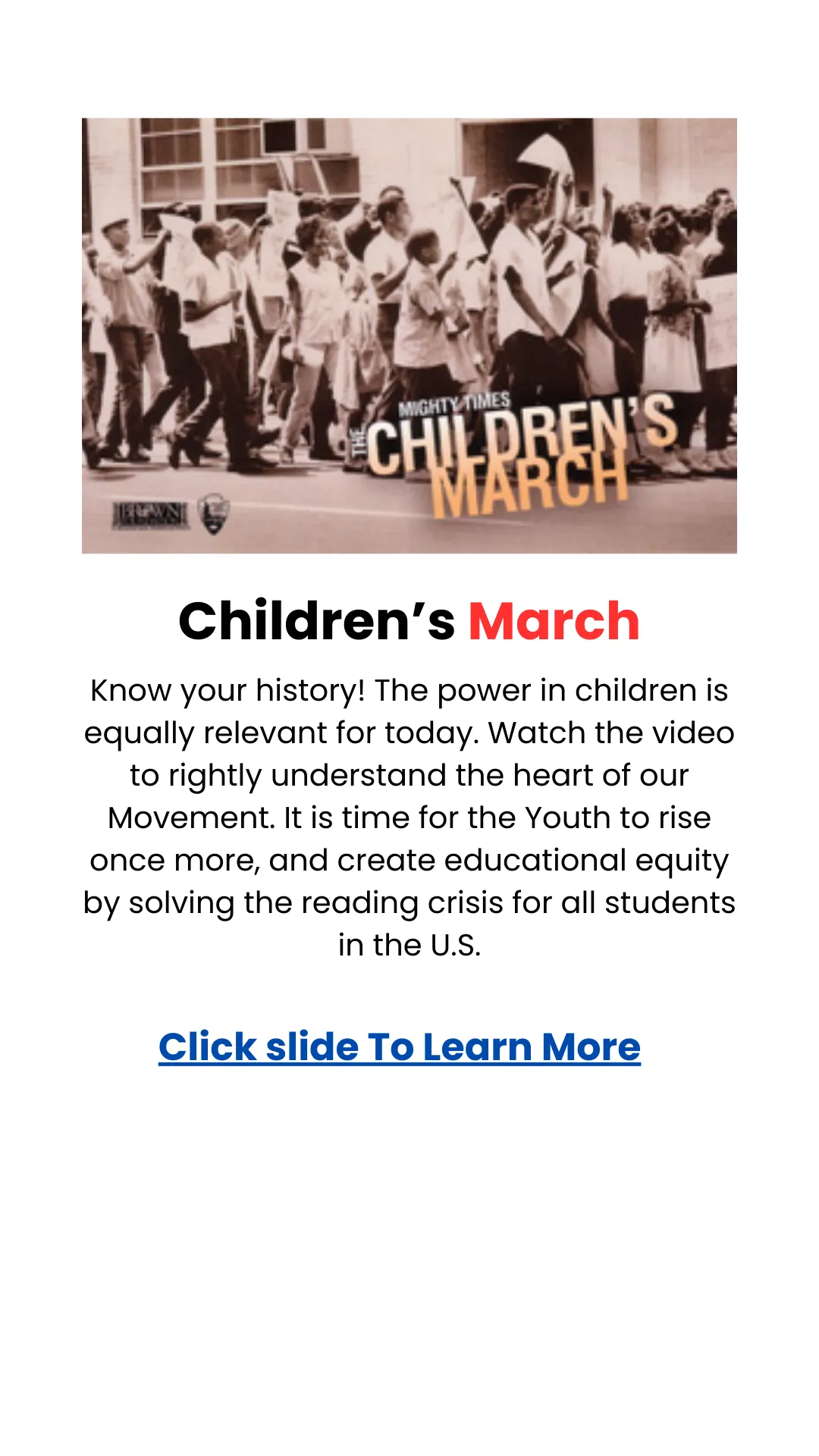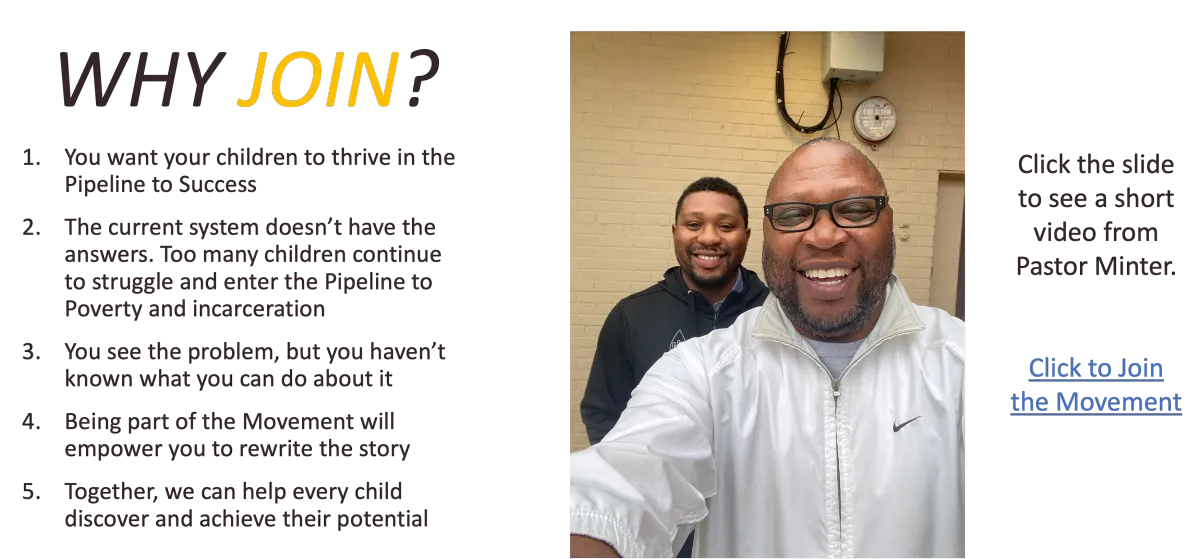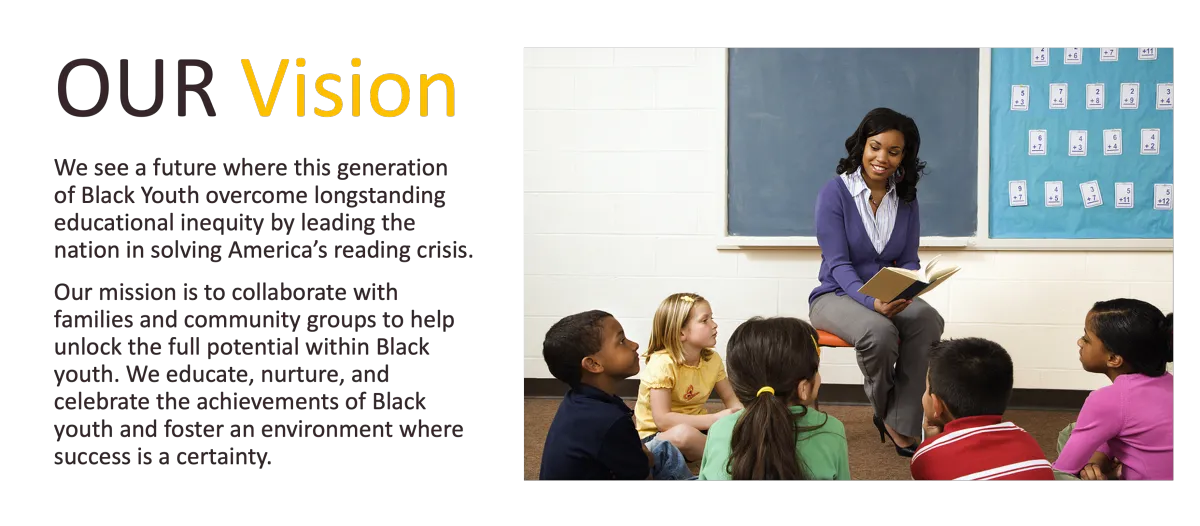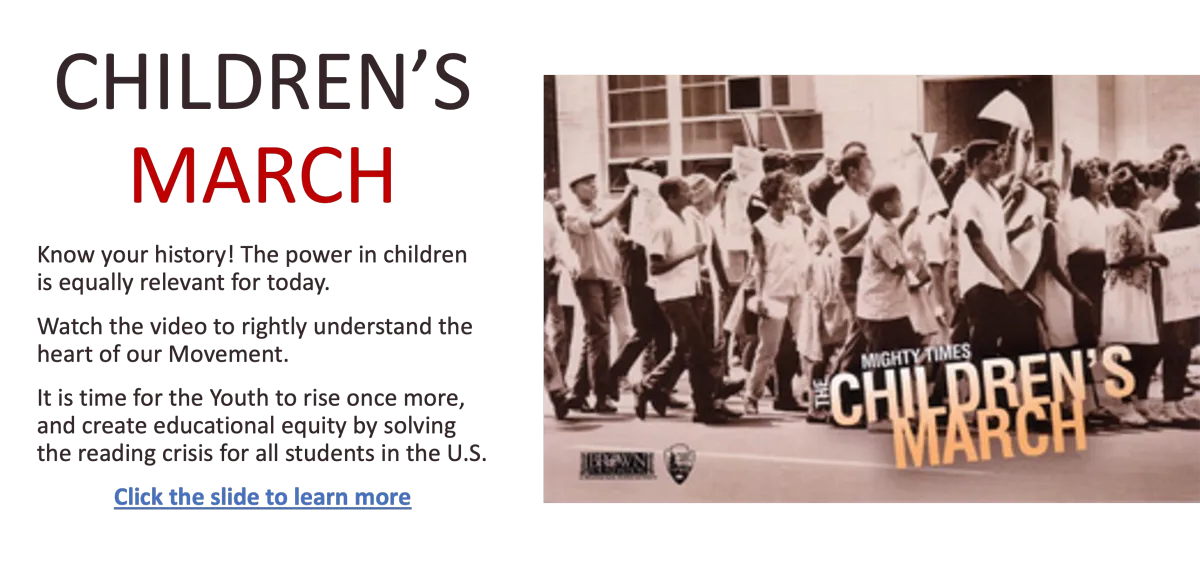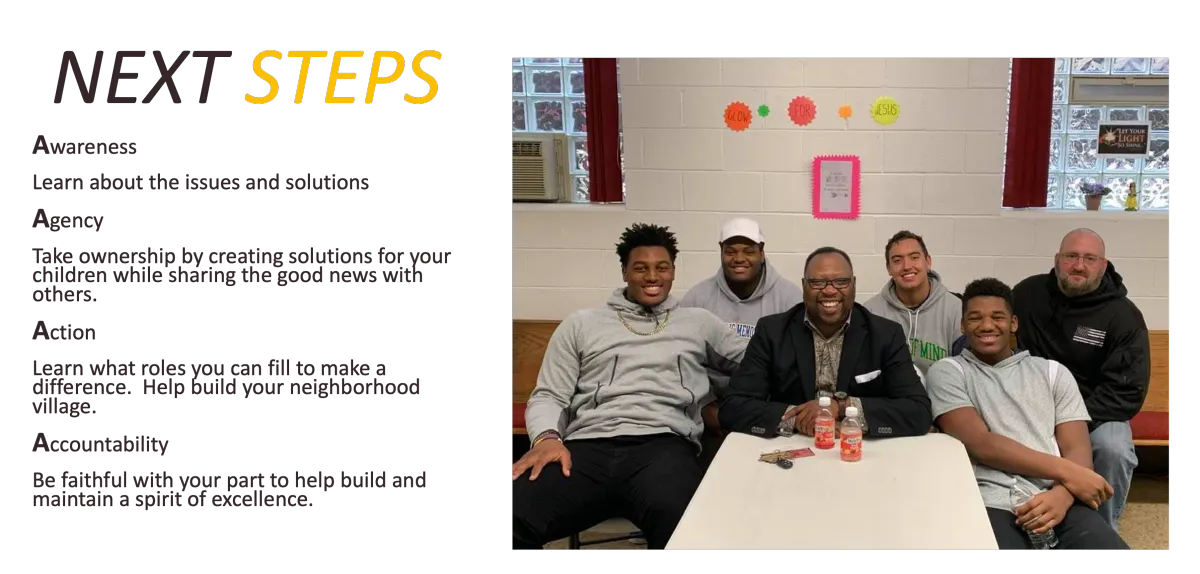


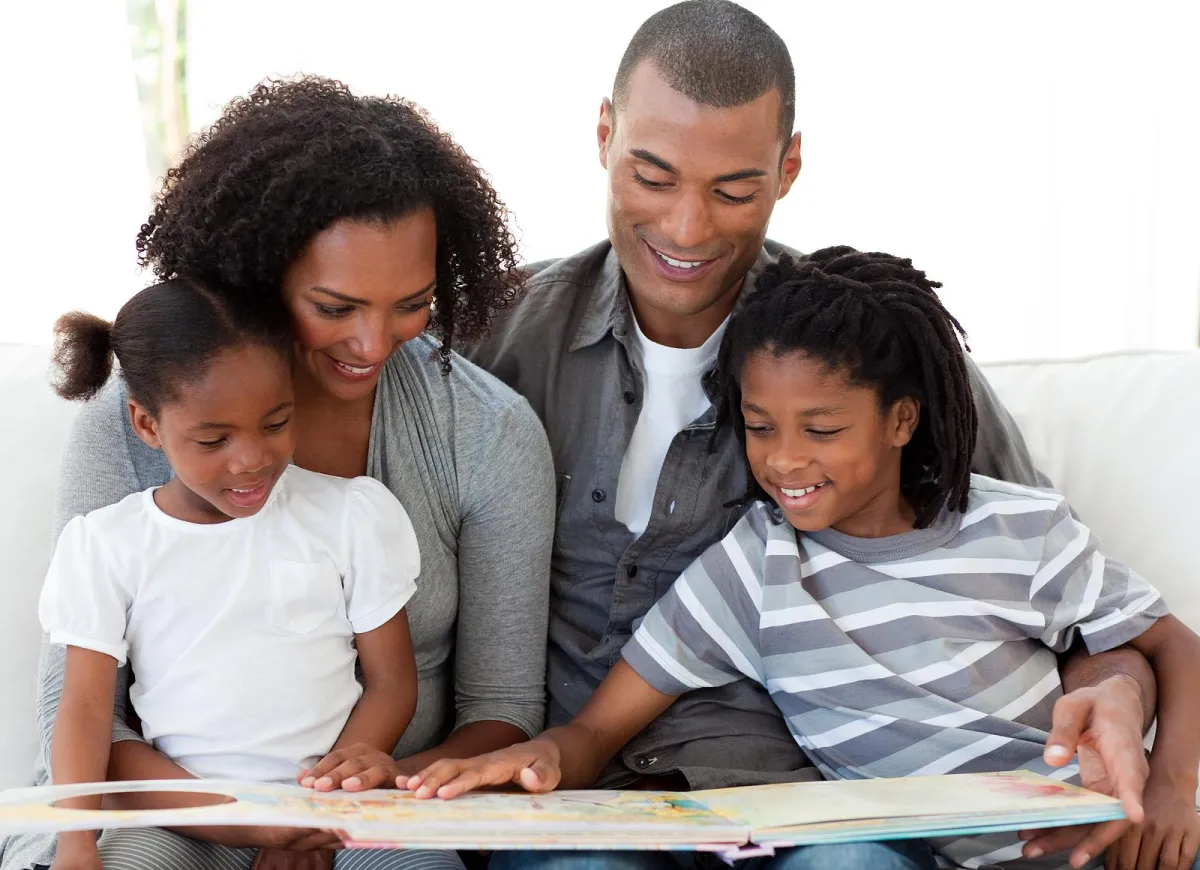
Students and families
Help your children build the skills that empower reading and academic success.
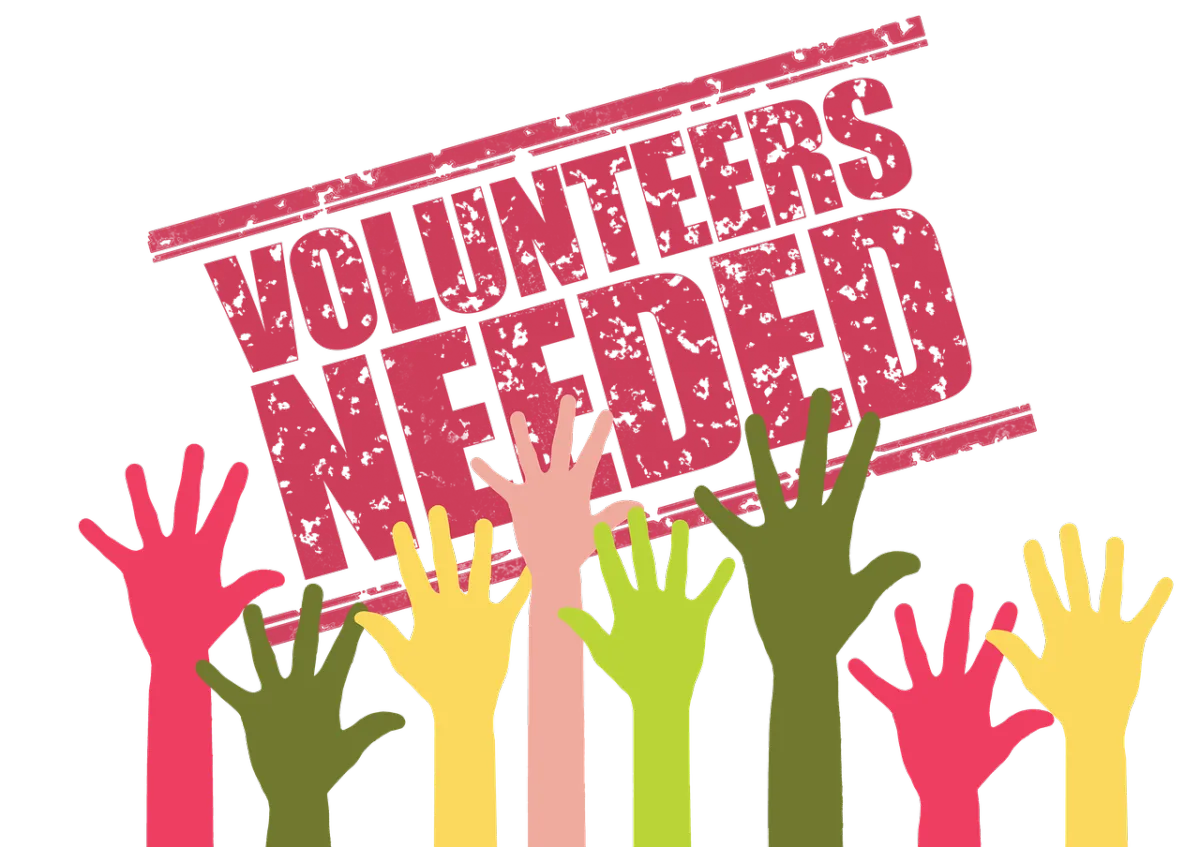
Volunteers
Your voice matters. You can help your community support families and students.

Build a chapter or village
Empower your community and neighborhood.

Students and families
Help your children build the skills that
empower reading and academic success.

Volunteers
Your voice matters. You can help your
community support families and students.

Build a chapter or village
Empower your community and neighborhood.


Alliance of Black Churches for Education Equity
Build a village to support families in your community


The REALITY Today
Only 16% of Black 4th grade students scored proficient on the 2022 NAEP compared to 41% for White students. Black students are 13 times more likely to be suspended from school than White students for the same offense. Black Americans are 5 times more likely to be incarcerated than White Americans for similar offenses. Home ownership rate for Black Americans is 44% compared to 73% for White Americans. White families on average have a six to one wealth advantage over Black families.
This is a longstanding foundation of inequity.
It is time to fix this. It is time to empower a generation of youth to lead Our nation and truly create equity and respect for all. Please join us as we, the Movement, make this a reality.

The REALITY Today
Only 16% of Black 4th grade students scored proficient on the 2022 NAEP compared to 41% for White students. Black students are 13 times more likely to be suspended from school than White students for the same offense. Black Americans are 5 times more likely to be incarcerated than White Americans for similar offenses. Home ownership rate for Black Americans is 44% compared to 73% for White Americans. White families on average have a six to one wealth advantage over Black families.
This is a longstanding foundation of inequity.
It is time to fix this. It is time to empower a generation of youth to lead Our nation and truly create equity and respect for all. Please join us as we, the Movement, make this a reality.


LITERACY
Literacy is a crucial gateway to empowerment and opportunity, especially for Black youth. Literacy is beyond just reading and writing; it’s a tool for engaging with the broader narrative of their community and the world. It opens doors to higher education and career opportunities, helping to break cycles of inequality and providing a platform for their voices to be heard. Investing literacy in our Black youth is not just an educational imperative; it’s the commitment of nurturing future leaders, innovators, and change-makers who will shape our society.


LITERACY
Literacy is a crucial gateway to empowerment and opportunity, especially for Black youth. Literacy is beyond just reading and writing; it’s a tool for engaging with the broader narrative of their community and the world. It opens doors to higher education and career opportunities, helping to break cycles of inequality and providing a platform for their voices to be heard. Investing literacy in our Black youth is not just an educational imperative; it’s the commitment of nurturing future leaders, innovators, and change-makers who will shape our society.


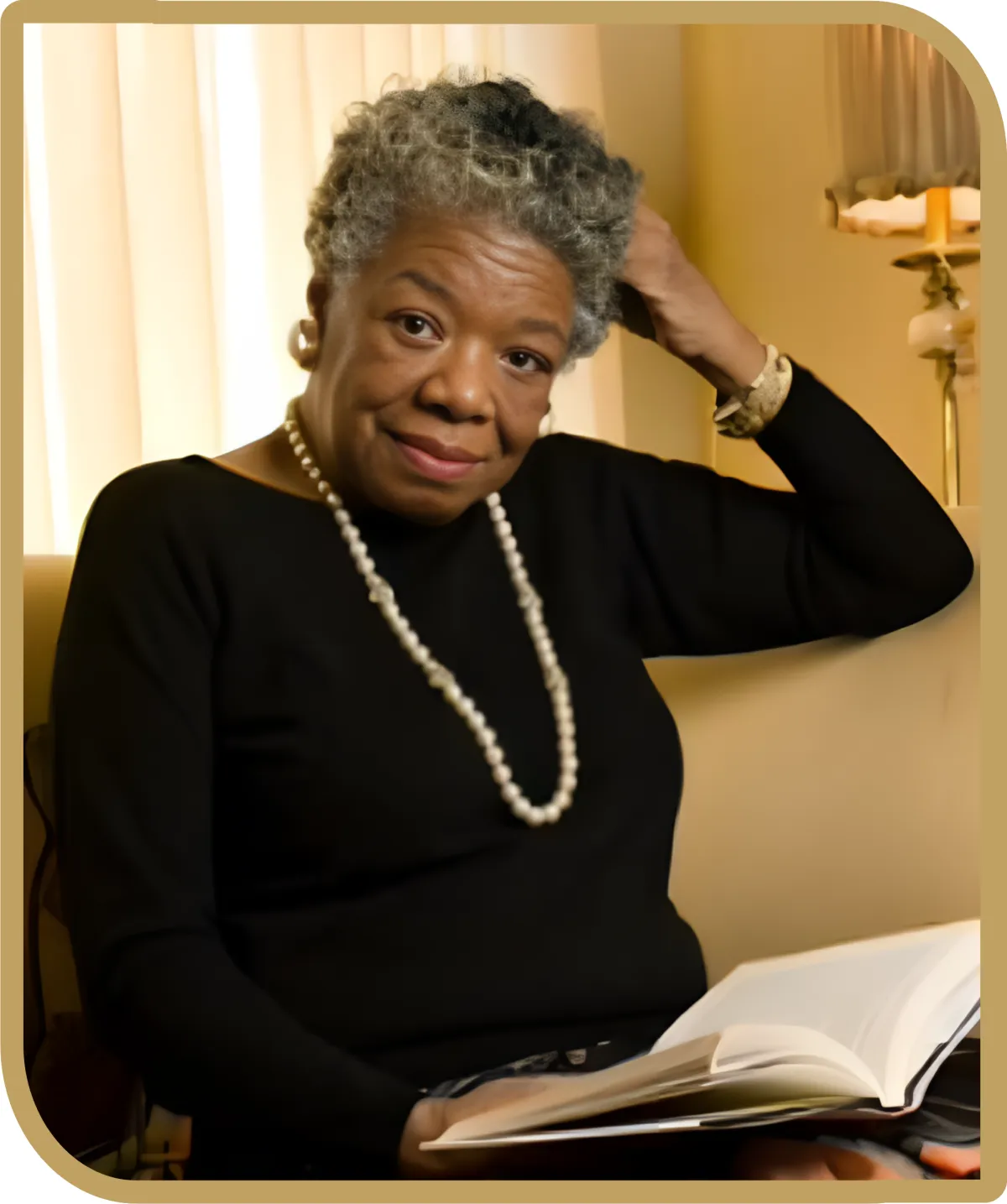
Q: If you were a 16-year-old today, what would you be doing to find your place in a world that can seem so bleak?
A: "I would read. That’s what I did. I would read everybody, all the time. I would read Dickens, and I would read Kenzaburo Oe for his almost painful insight. I would read James Baldwin for his unqualified love and beautiful writing."
Q: Young people can’t read Baldwin if they can’t read, period.
A: "Well, we recover—and this sounds almost preachy—by each one, teach one. Or, each one, teach ten. Elimination of illiteracy is as serious an issue to our history as the abolition of slavery."
MAYA
Angelou
Mother Jones Magazine (May/June 1995)
Interview by Ken Kelley

Q: If you were a 16-year-old today, what would you be doing to find your place in a world that can seem so bleak?
A: "I would read. That’s what I did. I would read everybody, all the time. I would read Dickens, and I would read Kenzaburo Oe for his almost painful insight. I would read James Baldwin for his unqualified love and beautiful writing."
Q: Young people can’t read Baldwin if they can’t read, period.
A: "Well, we recover—and this sounds almost preachy—by each one, teach one. Or, each one, teach ten. Elimination of illiteracy is as serious an issue to our history as the abolition of slavery."
MAYA
Angelou
Mother Jones Magazine (May/June 1995)
Interview by Ken Kelley


"Ordinarily, it is not a good idea to base how you vote on just one issue. But if black lives really matter, as they should matter like all other lives, then it is hard to see any racial issue that matters as much as education.
The government could double the amount of money it spends on food stamps or triple the amount it spends on housing subsidies, and it will mean very little if the next generation of young blacks goes out into the world as adults without a decent education."
THOMAS
Sowell
Investors Business Daily (Sept. 2016)
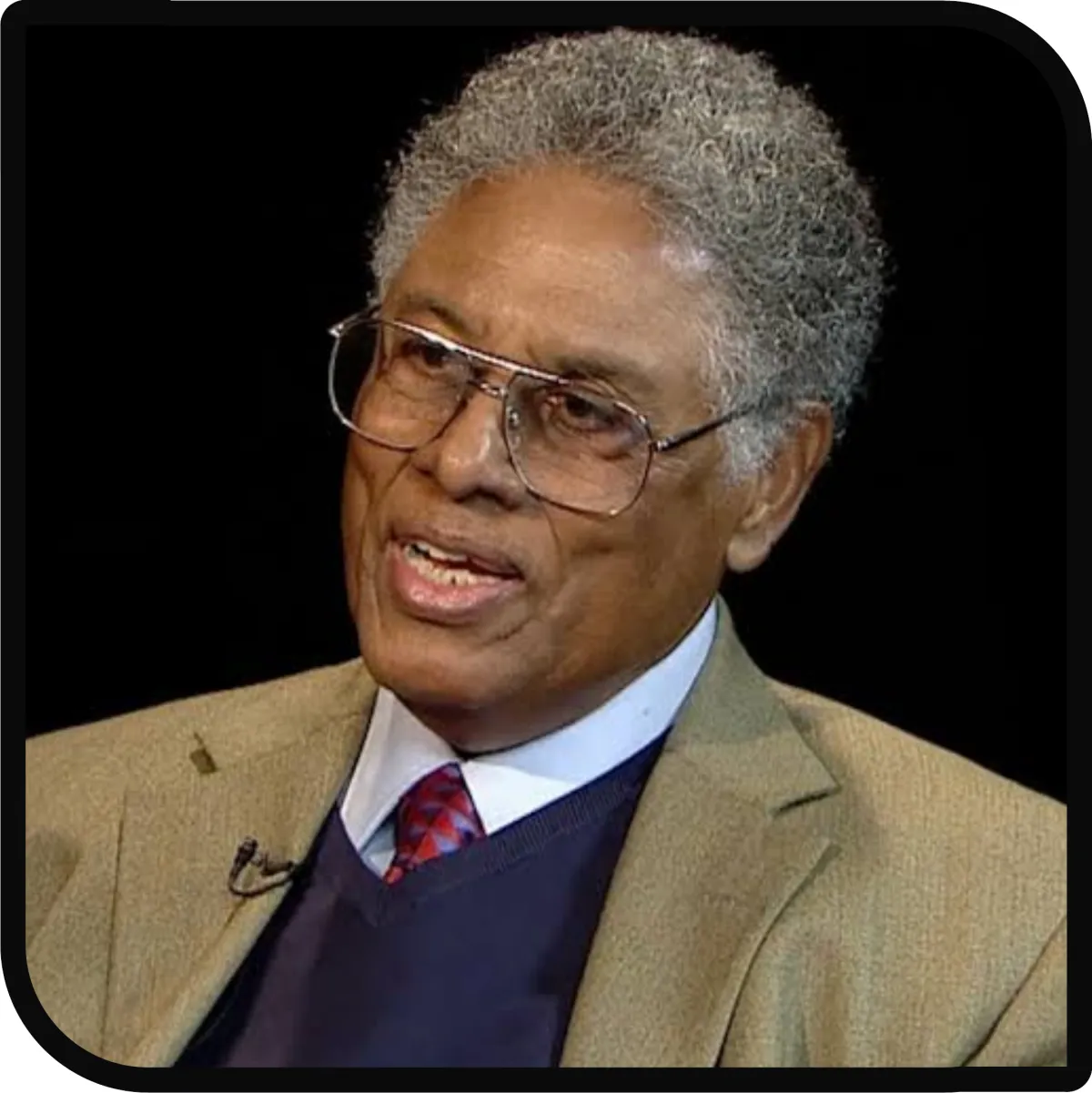

"Ordinarily, it is not a good idea to base how you vote on just one issue. But if black lives really matter, as they should matter like all other lives, then it is hard to see any racial issue that matters as much as education.
The government could double the amount of money it spends on food stamps or triple the amount it spends on housing subsidies, and it will mean very little if the next generation of young blacks goes out into the world as adults without a decent education."
THOMAS
Sowell
Investors Business Daily (Sept. 2016)


Poor literacy has significant and wide-ranging impacts, affecting educational achievement, employment prospects, health outcomes, and even societal costs. Here are some key statistics that underscore these detriments:
Educational Achievement: Children who are not proficient in reading by the fourth grade are four times less likely to graduate from high school on time, limiting their opportunities for a successful life. Additionally, more than one-third of fourth graders are reading below the basic level.
Incarceration Rates: There is a strong correlation between literacy and incarceration. The Literacy Project Foundation reports that three out of five incarcerated individuals cannot read. Furthermore, around 85% of minors charged with a crime have trouble reading, and 70% of inmates in U.S. prisons can’t read above a fourth-grade level
Economic Impact: Literacy disparities not only affect individual earnings but also have broader economic implications. Low literacy can lead to unemployment and underemployment, with illiterate individuals earning significantly less than their literate counterparts. In the U.S., low literacy levels are estimated to cost around $225 billion annually in lost workforce productivity, crime-related costs, and reduced tax revenue
Intergenerational Effect: Children of adults with low literacy skills are more likely to struggle with reading themselves. ProLiteracy found that children of parents with low literacy are 72% more likely to be at a low reading level in school
Impact on Health: Individuals with low literacy levels often face challenges in understanding health-related information, which can lead to poorer health outcomes. This connection emphasizes the importance of literacy in overall well-being and the ability to navigate complex health systems.
Societal Disconnection: Illiteracy is a factor in social disconnection, with a significant number of young adults who are not in school or employed lacking high school diplomas or GEDs. Societal disconnection impacts cycles of poverty and reduced societal participation.
These statistics highlight the critical role literacy plays not just in individual success but also in the broader social and economic health of communities. Efforts to improve literacy, particularly in vulnerable populations, are essential for breaking cycles of poverty, reducing crime rates, and enhancing societal well-being.
Poor literacy has significant and wide-ranging impacts, affecting educational achievement, employment prospects, health outcomes, and even societal costs. Here are some key statistics that underscore these detriments:
Educational Achievement: Children who are not proficient in reading by the fourth grade are four times less likely to graduate from high school on time, limiting their opportunities for a successful life. Additionally, more than one-third of fourth graders are reading below the basic level.
Incarceration Rates: There is a strong correlation between literacy and incarceration. The Literacy Project Foundation reports that three out of five incarcerated individuals cannot read. Furthermore, around 85% of minors charged with a crime have trouble reading, and 70% of inmates in U.S. prisons can’t read above a fourth-grade level
Economic Impact: Literacy disparities not only affect individual earnings but also have broader economic implications. Low literacy can lead to unemployment and underemployment, with illiterate individuals earning significantly less than their literate counterparts. In the U.S., low literacy levels are estimated to cost around $225 billion annually in lost workforce productivity, crime-related costs, and reduced tax revenue
Intergenerational Effect: Children of adults with low literacy skills are more likely to struggle with reading themselves. ProLiteracy found that children of parents with low literacy are 72% more likely to be at a low reading level in school
Impact on Health: Individuals with low literacy levels often face challenges in understanding health-related information, which can lead to poorer health outcomes. This connection emphasizes the importance of literacy in overall well-being and the ability to navigate complex health systems.
Societal Disconnection: Illiteracy is a factor in social disconnection, with a significant number of young adults who are not in school or employed lacking high school diplomas or GEDs. Societal disconnection impacts cycles of poverty and reduced societal participation.
These statistics highlight the critical role literacy plays not just in individual success but also in the broader social and economic health of communities. Efforts to improve literacy, particularly in vulnerable populations, are essential for breaking cycles of poverty, reducing crime rates, and enhancing societal well-being.
The Black Youth Success Movement operates under Success4rkids, a 501c3 nonprofit based in Akron, Ohio. Although we focus on uplifting Black Youth, all youth are welcome. Imagine if all Black Youth achieved their full potential, created educational equity and led the nation in solving the reading crisis for all students.
Copyright 2026 . Rise1000x All rights reserved
The Black Youth Success Movement operates under Success4rkids, a 501c3 nonprofit based in Akron, Ohio. Although we focus on uplifting Black Youth, all youth are welcome. Imagine if all Black Youth achieved their full potential, created educational equity and led the nation in solving the reading crisis for all students.
